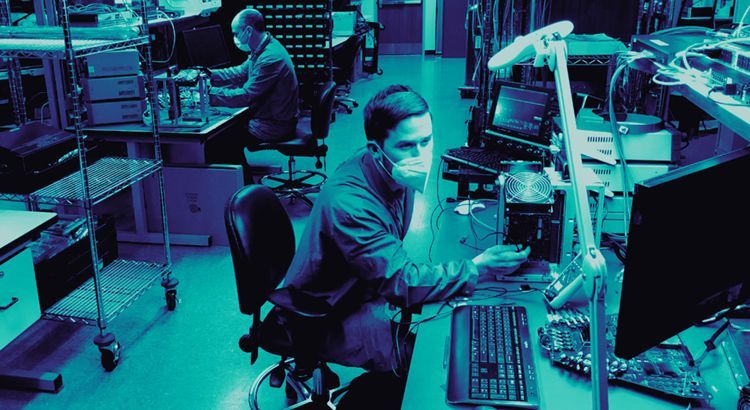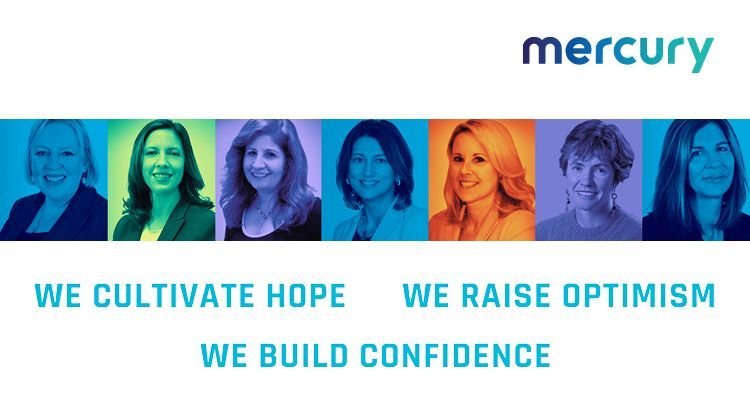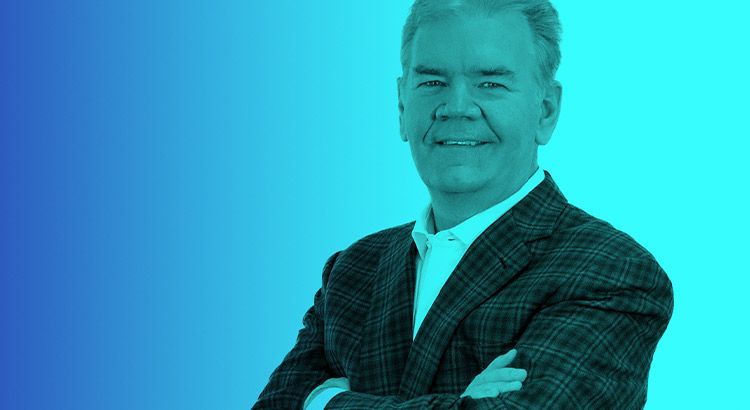
How disruption to the “office” paradigm is bringing business closer to authenticity
Stephanie Georges, SVP & CMO
April 14, 2021
It’s been a couple of weeks since I convened with 6000 leaders from around the globe at the Simmons Leadership Conference to share thoughts and engage around the theme of authenticity and resilience and what that means in our personal and professional lives. The conversation has remained at the forefront of my mind.
I’m not sure that years ago authenticity was so highly desired, but today I believe that people’s receptivity to authenticity is changing. And work from home has wildly accelerated that. Although working remotely seems, well, remote, through this process, we tapped into something extremely powerful—an opportunity to help build a more equal and inclusive culture.
In our unveiled spaces, we have been forced to acknowledge the chaos in each of our worlds. Through video conferencing, we are getting a glimpse into our coworkers’ lives, seeing a whole other part of who they are and an appreciation for their authentic selves. I’m sure everyone who has been working from home has a story about a child, family member or pet making an unexpected guest appearance in a meeting.
Because my coworkers see me working in my home, everyone on my team knows that, among other things, I’m a caretaker for my three children and for my 84-year-old mom with Alzheimer’s, and the struggles that go along with that. This is my authenticity; it informs who I am.
As we are all seen in living color, there is a shared communion – an awareness of the variety of our individual circumstances. That acknowledgement of diversity has allowed us to be more vulnerable and, therefore, authentic. And while we may be still early in the journey, I am optimistic that this will add a new and valuable dimension to our corporate culture—a culture that values empathy and embraces people for who they truly are.
I believe flexibility is here to stay in one form or another. An article in Forbes says research points to a more flexible work model, with the majority of time spent remotely, as the most promising direction for returning to work. And, according to Microsoft’s 2021 Work Trend Index, the next great disruption is hybrid work. I believe that we are witnessing a surge in the need for community and collaboration with the flexibility that people have now come to expect. Whether we call it hybrid or flexible work, there is no doubt the “office” paradigm has dramatically changed.
Disruption can be a good thing. At Mercury, disruption is usually positive—a technological innovation that significantly alters or improves the way that consumers, industries and businesses operate. COVID-19 will surely be known as one of the greatest, if not the greatest, disrupters of this century. Throughout the world, everything has been disrupted at home and at work and the pandemic has accelerated the adoption of a digital way of life.
When the pandemic hit, Mercury pivoted and was an early adopter of work-from-home measures to help protect the health, safety and livelihoods of our team members. We were resilient and quickly seized the moment of challenge and adapted it to what worked for our business. And while the Microsoft statistics show the past year saw productivity remaining the same or increasing, the downsides of prolonged work from home can’t be ignored. The digital loads in workers’ days – meetings, chats, emails, online documents – only seem to increase. We need to safeguard our team members from some of the isolation, boundary issues and burnout that can be associated with working from home.
As businesses continue their transformations to connect the physical and digital worlds, figuring out which approach works best for their particular needs, I hope leaders will best consider how to honor the value of authenticity, place their people at the center of their future workplace strategies, and foster a work environment where people feel safe being themselves. Numbers don’t lie – people who can be authentic at work interact more closely with coworkers and report higher productivity and overall well-being. By infusing our work culture with authenticity, we can tap into that “disruption for good” and digitally transform our workplaces for the better.







 Reflecting on the power of our Mercury women
Reflecting on the power of our Mercury women What The Speed of Mercury means to me
What The Speed of Mercury means to me